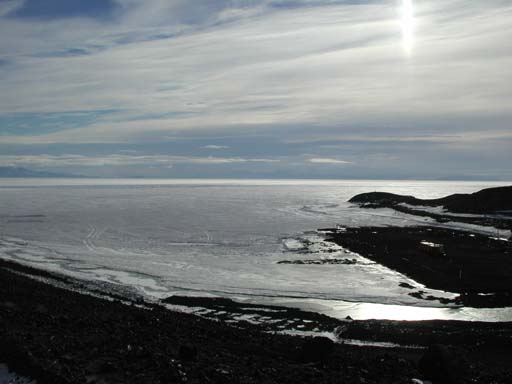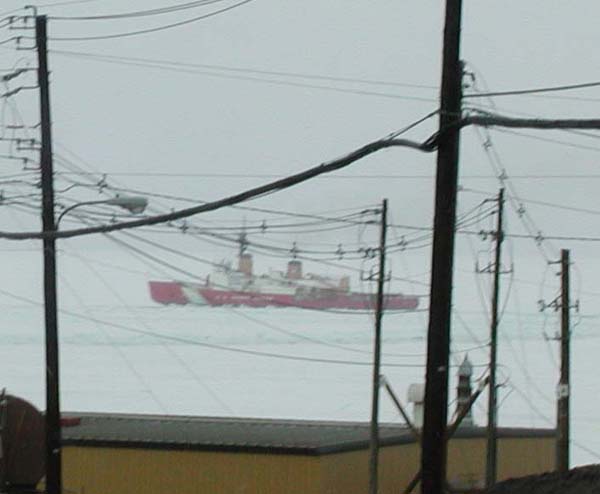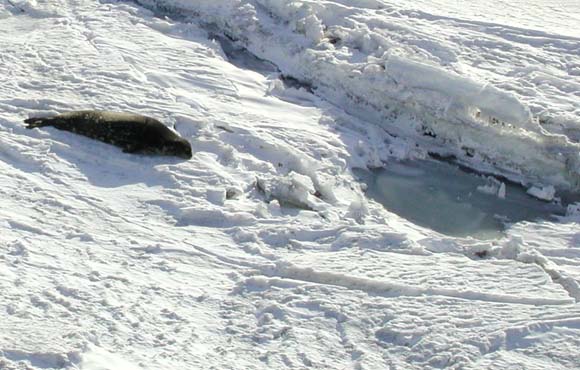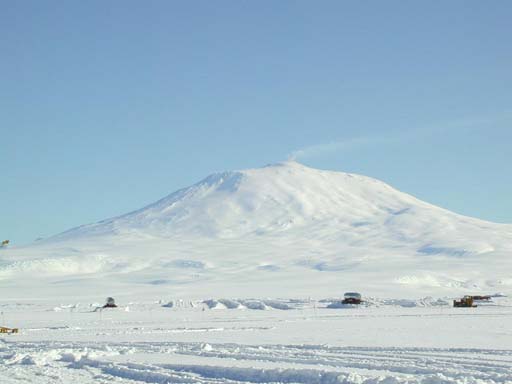
Wednesday, January 3, 2001
Travelling on military flights is never routine. Yesterday, we arrived at McMurdo from a routine flight. We went to the housing office. A woman in the office warmly greeted us, gave us our room, and then told us that our flight would leave the next day. That news surprised me as I thought I had to wait a day for our flight. It seems schedules always change. About an hour later, I decided to bring one of my bags to the flight dispatch center. On my way out, I learned that our flight was cancelled. One hour later, I met two passengers from our South Pole flight. One passenger was very annoyed that he was not put on the Wednesday flight. He made several phone calls. Suddenly, the cancellation vanished.
Today, we got up early and met at the flight dispatch center. We were taken to the airport and left a few minutes early. After about 40 minutes of flight time, the sergeant in charge of the passengers made a fateful announcement. We have to go back!
We return to McMurdo; as we taxi to the terminal, the back of the plane opens. A crewman loads a large wooden box. We take off again. It seems a plane in New Zealand needed a part. If we did not return to pick it up, the plane would be grounded another day.

While in McMurdo, I saw many unusual sights. You can see a picture of the Ross Sea. When I came in December, I landed on this ice. Now it is melting. You can see water at the coastal edge. On the right, appears Scott point. That is the place that Scott built his headquarters for his ill-fated trip to the pole. Just below the horizon, there is a long line that extends across the picture. That is broken up ice from an icebreaker. A ship is clearing the bay by McMurdo. In a few more weeks, the ice will break up and float out to sea. Then, ships can bring needed supplies and fuel. Other vessels will bring tourists.

Last night, when Doug, a scientist doing research on the atmosphere of the pole, and I walked to Scott point, we looked down upon the ice. There was a leopard seal, sleeping on the ice by his water hole. This seal feasts on penguins. Unfortunately, it drove away the penguins - one of the objects of our stroll. A picture of penguins will wait for another trip.

McMurdo also features an active volcano, Mt. Erebus. This mountain, which as adjacent to our airport, is an active volcano. You can see the plume of gas heading to the right. One of the passengers on our way back to Christchurch was studying it.

As I end my journal, I would like to say that even though scientists do not get high salaries, earn stock options, or become rich, we get many perks. We travel to interesting places, do jobs that we love, and even sometimes make important discoveries. I hope that you enjoyed reading this as much as I did writing it. Feel free to ask me questions. I will post those that appeal to a larger audience. Also, I hope to put some of the QuickTime movies that I took on the web site.
Also, I would like to thank Andi Erzberger for posting these messages. She even did some of this during her vacation. Finally, I would like to thank the support staff in the South Pole. McMurdo, and Christchurch. They all did their jobs with friendliness and enthusiasm. They minimized the effort of the trip and gave us the chance to do science.
Finally, the South Pole is a wonderful place - a magnet that the draws people for many reasons. Adventures seek it because it is the bottom of the world. Scientists go there because the atmosphere is pristine, there are no better places for observations, or it is so remote so that mankind's impact on the environment is minimal. Workers go there because it so different from their world. It is a chance to spend time in a mystical land. Whatever the reason for the journey, the Pole brings all of these different people together for a mystical, fabulous experience.
Best wishes,
Howard Matis
Flying back to Christchurch